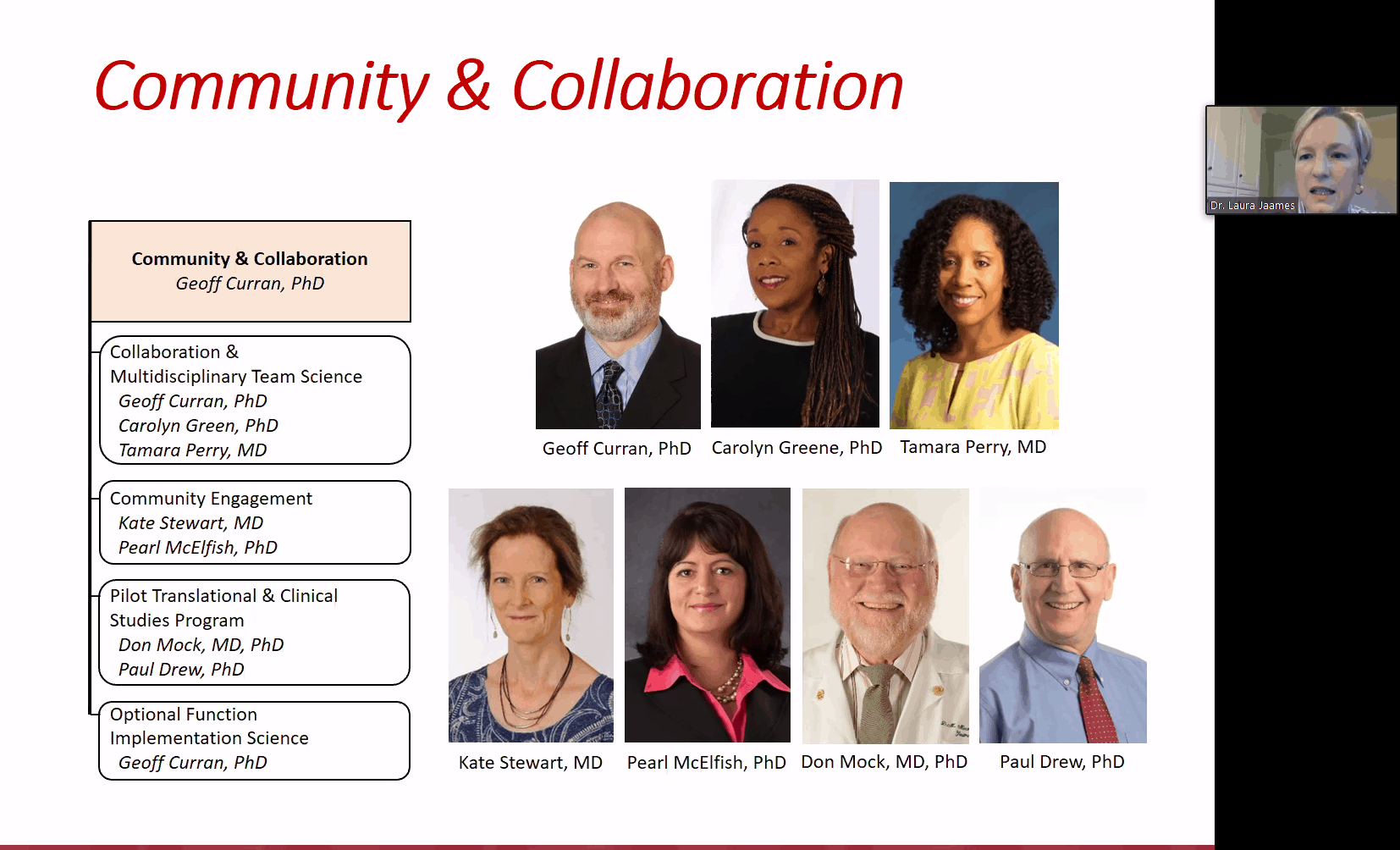UAMS Translational Researchers Are Meeting the Challenge of COVID-19, ARA Audience Hears
| COVID-19 has been in the United States less than a year, but UAMS translational researchers have moved quickly to play key roles in statewide and national efforts to combat it.
During a presentation Oct. 21 sponsored by the Arkansas Research Alliance (ARA), Laura James, M.D., director of the UAMS Translational Research Institute, and her colleagues highlighted key studies and how translational research is helping UAMS meet the challenges of COVID-19.
The most effective translational researchers are part of teams of multidisciplinary experts who involve communities in tackling major health issues like the coronavirus, said James, an ARA fellow.
“We’re talking about taking knowledge that’s learned in a basic biology lab or knowledge gleaned from clinical trials, and using that knowledge to address critical medical needs,” she said. “We are building collaborations on the academic level, but probably more importantly, with our communities and other external partners, such as business groups or other agencies.”
Her presentation was part of the recently launched ARA series Project Scope – A Closer Look at Arkansas Research. The Zoom webinar drew more than 150 registrants, including researchers as well as academic leaders, business leaders and members of the public service sectors.
UAMS is well positioned for COVID-19 research, she said, thanks to the resources and stature that come with its national Clinical and Translational Science Award (CTSA). The UAMS Translational Research Institute is supported by a five-year $25 million CTSA from the National Center for Advancing Translational Sciences at the National Institutes of Health.
UAMS has about 75 COVID-19 studies either active or in startup, including eight studies testing new therapies.
James invited UAMS’ John Arthur, M.D., Ph.D., and Joshua Kennedy, M.D., both COVID-19 researchers, to present their COVID-19-related work.
In an update on the UAMS-led Arkansas Coronavirus Antibodies Seroprevalence Survey, Kennedy reported early results showing that 3.5% of Arkansans have been infected with the novel coronavirus. Read the news release here.
Arthur, chief of the Nephrology Division in the College of Medicine Department of Internal Medicine, gave an overview of his research examining a potential drug target that could curb some of the worst effects of COVID-19.
The coronavirus enters cells and causes organ damage by attaching to a protein called ACE-2. The amount of the protein is different between people.
Arthur has developed a deep understanding of the protein because of the role it plays in kidney disease, which has been his primary research focus. He said further analysis of the molecular activity will confirm whether the amount of the ACE-2 protein is important in causing someone to develop severe illness with COVID-19.
“If it is, there are things that can block this pathway,” Arthur said. “We could shift this with drugs if we need to.”
Jerry Adams, ARA president/CEO, said the webinar highlighted UAMS’ collaborative leadership during the COVID crisis, as well as how UAMS is developing the next generation of UAMS research leaders represented by Kennedy.
“ARA launched its Voices4Research initiative last month, and UAMS ARA Academy member and ARA Fellow Laura James was highlighted in both the monthly Arkansas Money & Politics article earlier this month as well as the Oct. 21 ARA Scope webinar,” Adams said.
Douglas Hutchings, ARA Academy director, said COVID-19 has put translational research in the forefront and highlighted how, in the right circumstances, advanced research leads to better health outcomes.
“Dr. Laura James and her team provided a glimpse of how local research is helping the world better understand coronavirus and developing the tools necessary to thrive in a post-COVID-19 world.”


